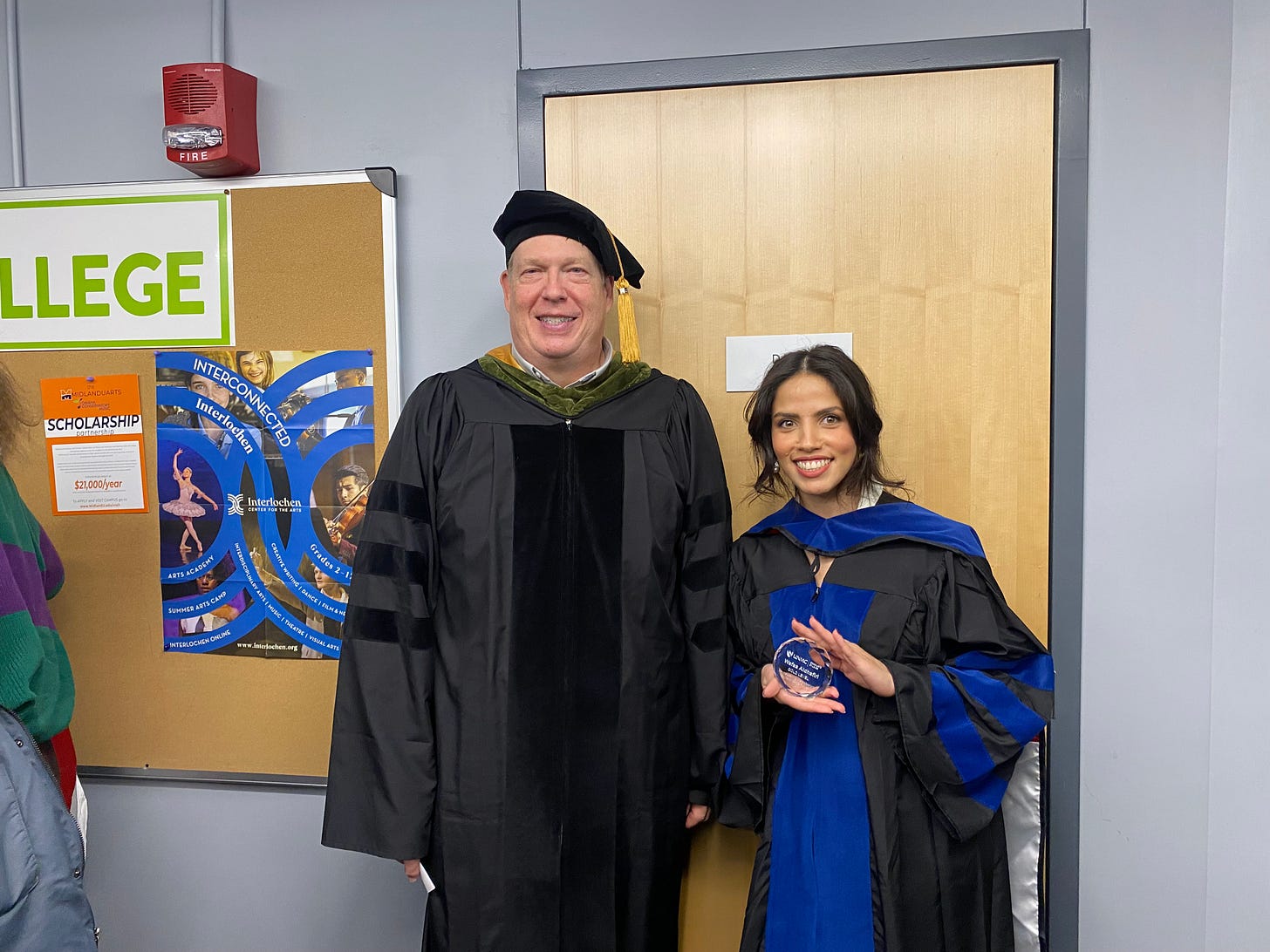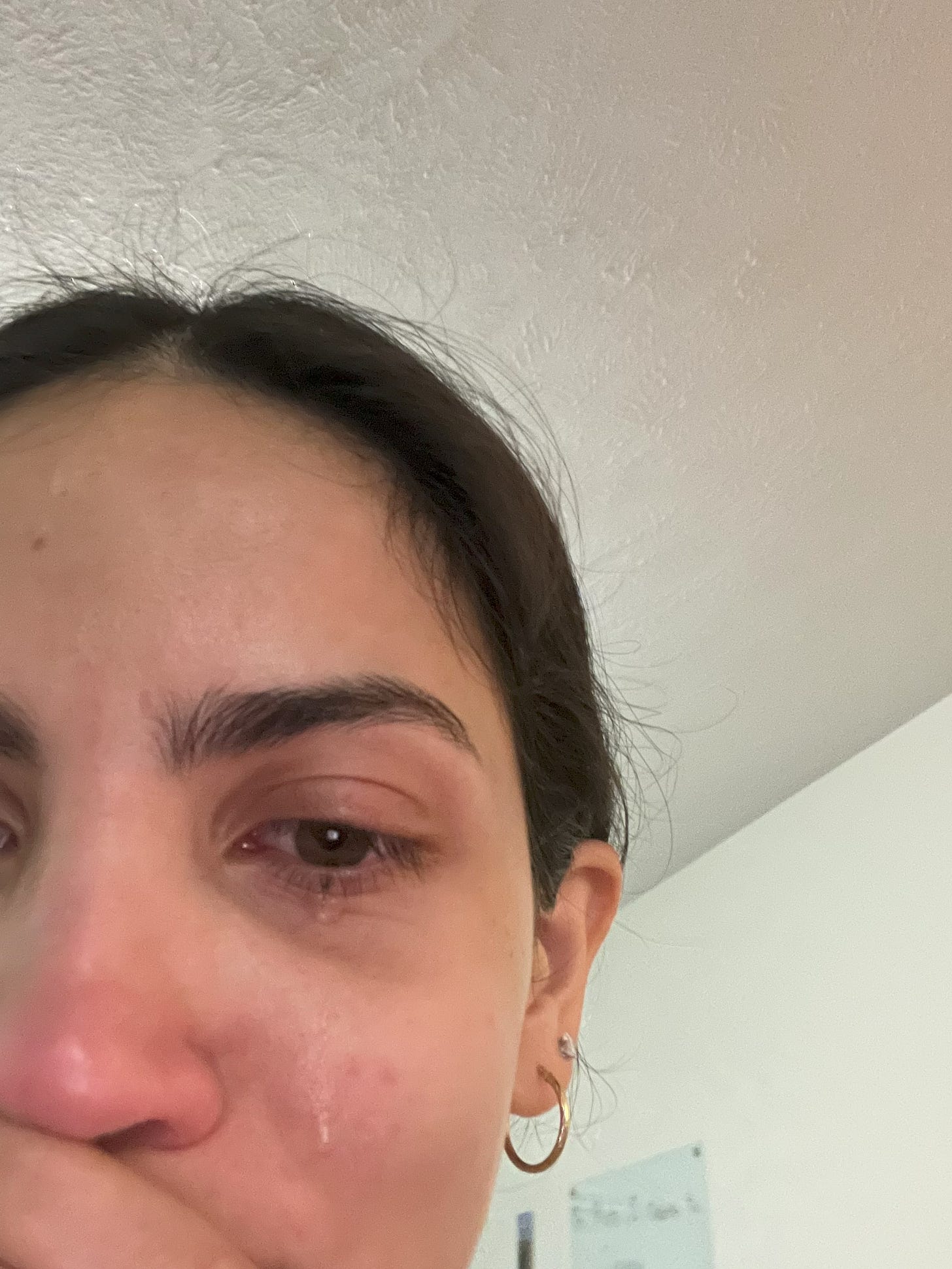I graduated this fall and attended my graduation convocation in December. Looking back, I can genuinely say I truly enjoyed my PhD journey—I actually aced it! However, I’ve realized that not everyone feels the same way. Some of my fellow graduates were even reluctant to take a photo with their PIs because of the difficult experiences they endured during their PhDs.
That contrast inspired me to write this blog post. First, as a way to honor this incredible journey, and second, to hopefully guide and inspire young PhD students to create a similarly positive and fulfilling experience for themselves.
First: Mentor, Mentor, Mentor
The mentor you choose and the PI you work with will determine 90% of the outcome of your PhD journey (yes, they really do have that much power over you). Pick a mentor who will fight for you—because trust me, issues will arise, and you’ll need someone who can protect and support you. Choose a mentor who is empathetic and gracious. There will be times when you can’t produce data or meet expectations, and you’ll need someone who understands and supports you through those moments. Lastly, pick a mentor with a collaborative and friendly lab environment.
Now you might ask, “Wafaa, how can I find a mentor like that? Wouldn’t it take time to know if a mentor is empathetic and supportive?” A good way to find out is by asking their previous students. You can find them on LinkedIn and ask about their experience, or even request the mentor directly for contact information of their previous students (yes, it’s absolutely okay to ask for a reference)
Another way is during your rotations. Pay attention to the environment—observe how the students interact with each other because they often reflect the mentor’s values and attitude. Finally, listen to department gossip. See if any conflicts have arisen and, more importantly, how the mentor handled them.

Second: Cry About It If You Need To, but Then Ask for Help
When things get tough—and believe me, they will—remember that it’s okay to cry, complain, and even get angry. If your PhD doesn’t challenge you to your core at some point, you might not be doing it right. These emotions are part of the human experience and deserve to be expressed.
However, don’t stop there. Acknowledge your feelings, but then take action. If you’re overwhelmed, talk to your labmates. If you’re feeling depressed or sad, confide in your mentor. If you’re stuck, ask for guidance. Seek the help you need, whether it’s from your mentor, labmates, colleagues, or even student counseling services.
For me, my PhD journey brought unresolved issues to the surface—chronic depression, an inferiority complex, imposter syndrome, lack of confidence, anger, and impatience. These challenges grew until I couldn’t ignore them anymore. I realized that the only way to finish my PhD was to face these issues head-on.
I sought therapy, took medication when necessary, and embraced yoga and meditation. I even revisited parts of my past to confront and release what no longer served me. This process of growth and self-healing became as transformative as the academic journey itself.

Third: “Most of the Learning Happens Outside the Lab”- Dr. Dele Davies
The job you end up doing after graduation will likely differ from the day-to-day tasks you perform in the lab. The skills that will truly transfer and serve you in your career are not just technical but also interpersonal: people skills, collaboration, clear communication, leadership, problem-solving, and the ability to find and synthesize information.
That’s why it’s important not to focus solely on perfecting your pipetting. Instead, take advantage of extracurricular activities and opportunities to learn and grow. Whether it’s joining a student organization, volunteering, or attending workshops.
Even resolving conflicts is a learning opportunity. There’s often an expectation that as a PhD student, you are mature enough to handle conflicts independently and gracefully. Use these moments to practice diplomacy, patience, and problem-solving—they are just as valuable as any experiment you’ll run in the lab
Fourth: Take Advantage of Every Resource Available to You
As a student, you have access to a wealth of resources on campus—make the most of them! These might include student counseling/free therapy sessions, yoga classes at the gym, free tickets to concerts, movies, or other events, and student discounts for everything from software to streaming services, local shops, and restaurants.
Academic and financial opportunities are equally important. Explore any scholarships, fellowships, or certifications your university offers. One of the most impactful opportunities I took advantage of was a Business for Bioscientists certificate program offered by my university. I learned so much about the business side of science, which broadened my perspective and added valuable skills to my toolkit.
Don’t overlook these benefits—they can save you money, enrich your PhD journey, and provide personal and professional growth beyond the lab.
Fifth: Immerse Yourself in the Culture and Have Fun Intentionally
As an international PhD student, I realized early on that immersing myself in the culture and connecting with the people around me was just as important as excelling academically. Embracing the local culture not only opens your eyes to new perspectives but also transforms you as a person.
Take time to explore your surroundings—visit museums, learn about local artists, join social clubs, and familiarize yourself with local heroes. Dive into the traditions of the place you’re living in. I celebrated holidays like Thanksgiving by hosting parties, shouted at the top of my lungs watching the Celtics live , attended weddings and baby showers, and even got involved in local politics. These experiences made me feel more connected and enriched my time as a PhD student.
Also, don’t miss the chance to try new activities. I learned how to golf during my PhD, and now it’s one of my favorite sports. Travel whenever you can—visit national parks and new cities, but remember to go beyond being a tourist. Be respectful of the community you’re exploring and engage with it genuinely.
If the community offers you something—whether it’s an invitation to a meal, an event, or a casual hangout—don’t reject it. Accepting these opportunities is all part of the experience and helps you build meaningful connections that will stay with you long after your PhD journey ends.










Share this post